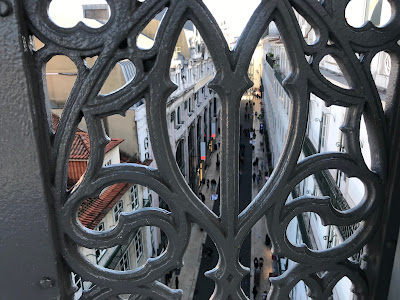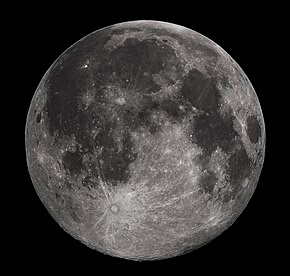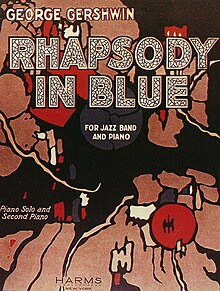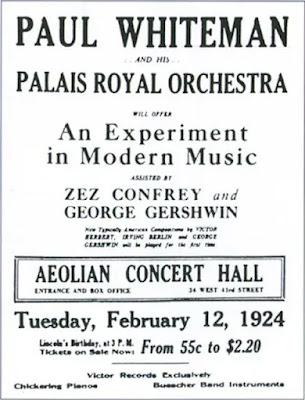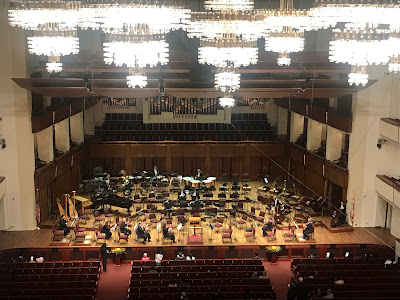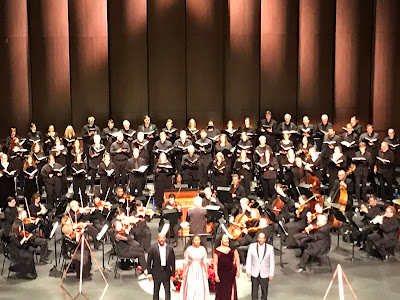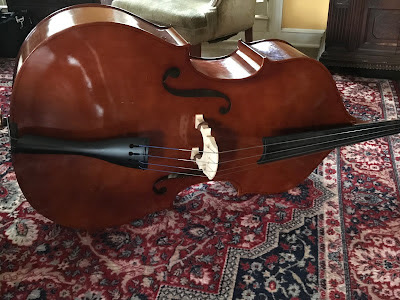Yesterday, after the errands were run and the groceries put away, I sat down at the piano, pulled out the ancient sheet music and played the opening run. For the next 30 minutes, I bungled my way through one of the most important and beautiful pieces of American music ever written, George Gershwin’s Rhapsody in Blue.
A hundred years ago to the day, on a snowy February 12, 1924, Gershwin played the piece at Aeolian Hall in New York City in a concert billed as “An Experiment in Modern Music.” Paul Whiteman had commissioned Gershwin to write the piece, and Gershwin had done it in just a few weeks, roughing out the original idea on a train trip from New York to Boston. “I heard it as a sort of musical kaleidoscope of America, of our vast melting pot, of our unduplicated national pep, of our metropolitan madness,” Gershwin said.
He had created a masterpiece. Though no one knows exactly how the piece sounded that day (it wasn’t recorded and Gershwin improvised parts of it), a recording made a few months later is thought to be a close replica. The piece was an immediate success, with multiple recordings, and Paul Whiteman made the Rhapsody the theme song for his radio show. Gershwin had created an anthem for the Jazz Age.
Later versions of the Rhapsody give it a more lush orchestral sound, but the original performance brought out the jazzy brightness of the piece in all its syncopated glory. Even hopscotching through the music as I was last night, cherry-picking the easier sections, I felt its magic in my bones.
(Thanks to Wikipedia and The Syncopated Times for info and art, and to Hot Jazz Saturday Night for the inspiration.)
